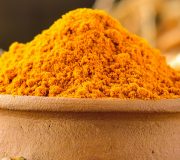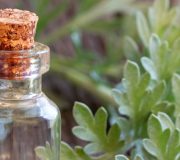About this Episode
In this episode of the Medicinal Herbs podcast, host Daina Parent, ND, talks with naturopath and medical herbalist Berris Burgoyne about the gut microbiome, dysbiosis, and the role of nutrition and herbs in supporting gut health.
What is Dysbiosis?
Berris describes dysbiosis as any detrimental change that occurs in the population of microbial species in a certain area of the body, like the microbiome (00:56). Elements of a detrimental change may include:
- Loss of beneficial microbes
- Overgrowth of pathogenic bacteria
- Loss of diversity of bacteria
- A combination of the above
Why the Gut Microbiome is Important
The gut microbiome is a fundamental part of human health (02:15). It is involved in the regulation of the nervous system, immune function, and metabolism. The gut microbiome also plays a significant role in the absorption of nutrients. There is a wide range of health issues related to dysbiosis in the gut microbiome (06:46). Many have roots in low-grade systemic inflammation, which may also be connected to lifestyle factors like diet and physical activity levels.
>> Audio Bookmark: “I don’t think that there’s an organ or tissue or system or process in the body that is not affected by the lower gut microbiome in some way, either directly or indirectly” (03:14)
Dysbiosis: Major Contributing Factors
Major factors contributing to dysbiosis include diet, antibiotic exposure (through food and pharmaceutical drugs), and stress (08:03). Diet is a major contributing factor to dysbiosis often because Western diets contain disproportionately high amounts of processed foods, which are high in calories but low in essential nutrients.
When talking with patients about how dysbiosis develops and how to address it, making changes in the diet is key (15:00). Berris emphasizes the importance of a diet rich with fresh fruits and vegetables, nuts, seeds, legumes, and grains in promoting a healthy microbiome composition. Good quality protein is also an important dietary factor for addressing dysbiosis (24:27).
Berris also describes the role of managing stress as much as possible to support the microbiome and address dysbiosis. In addition to other stress management approaches, many medicinal herbs also support healthy stress levels.
Herbs for A Healthy Microbiome
There is a variety of herbs that may address dysbiosis and support the different aspects of a “healthy” microbiome. Part of Berris’s herbal protocol includes antimicrobial herbs to reduce the population of pathogenic organisms in the microbiome to make room for beneficial bacteria to grow. Probiotics and prebiotics are also key components to address dysbiosis. Herbs for the microbiome that Berris likes include:
- Philodendron, which contains berberine
- Oregano and anise
- Andrographis
Additionally, Berris recommends green tea as it contains polyphenols with wide-reaching health effects, including suppressing the growth of pathogenic organisms in the gut and encouraging the growth of beneficial organisms.

















